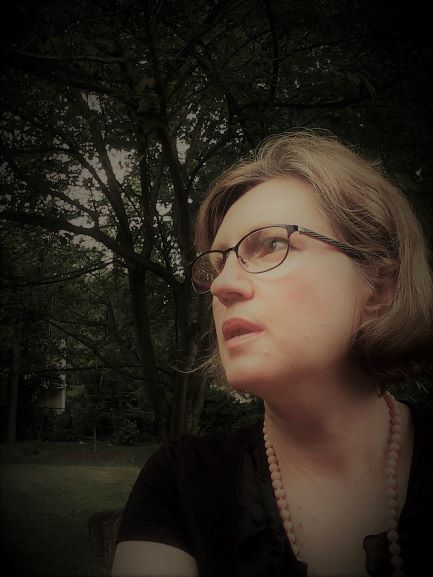Published June 5th, 2020
Review
by John Salimbene

The love of one’s country is a life-long battle for many. For Carmen Bugan, patriotism is a garden, flourishing with buds of beauty, betrayal, distrust, invasion, and other delicate flowers. The poems in her latest collection, Lilies from America, paint vibrant images of exile, surveillance, and childhood under a totalitarian regime.
Bugan was born in Romania under the reign of Nicolae Ceausescu, one of the modern world’s most infamous communist dictators. During his rule, he imprisoned and executed activists, invaded the homes of his opposition with a secret police force, reduced the country’s economy nearly to a hunter-gatherer state, and was notorious for many other oppressive policies and inhumane atrocities. These atrocities are the context for Bugan’s work. With her father being a very vocal activist against Ceausescu’s dictatorship, her poetry reflects a family inextricably bound to the fight for freedom.
In a poem titled “The demonstration,” the speaker describes a protest. Her father drives a car draped in anti-government signage through a frantic scene of halted traffic, hollering pedestrians, and armed soldiers. Her father is ripped from his car covered in placards and arrested while “None of his countrymen said a word.”

This is a piece that demonstrates Bugan’s acute sense of when to use her power as the poet. She often holds back on certain images and saves them for stanzas that allow their reveal to be most jarring: “In a hospital, Dad’s only son was born— / Mother held his bluish body wrapped in white cloth / At the window.” This image is presented just before the father’s arrest, as if to say that his children’s freedom is more important than his own; or that the miracle of life is no miracle at all if one is born into absolute oppression.
Bugan’s language is observational in tone. At times it hearkens back to the birth of Imagism, and the rise of what T.E. Hulme described as the “hard, dry image.” The abundance of free verse in her style and lack of structural meter reflects, in a way, the freedom that she and her people once lacked in Romania. However, the specificity of her images is what keeps the reader grounded and engaged: “She digs with her fingers to feel the reality of soil […] / But she looks for that softness and warmth / That will be a sort of home—after death.”
The language here is simple, but the context of a surreal life suggests many interpretations. In these lines, it is as though the speaker is saying that the soil is the only real, tangible thing in the world. I feel she is suggesting that death may be the only escape from suffering, and the soil may be the only “home” in a country where homes are not truly sacred at the hands of the government.
Language plays a huge role in Bugan’s work, both regarding her style and the themes in this collection. Although her verse is fluent and elegant, there are poems reflecting the poet’s life in the West, and they often present a haunting idea of language being its own form of exile. A poem that I particularly enjoy, “Twenty years,” touches on this idea:
Who can see ahead on that first day when
You awake without a country, a house,
In a week-meaning stranger’s bed, your
Host speaking to you in an alien language?
I ate the food she served with trembling hands…
Bugan has been writing in English for over two decades, and as a bi-lingual poet she uses her words to show us that language can be alienating or freeing. In other words, we cannot unlearn the language and norms we are born with or ignore their influence on our experiences.
Poems such as “And now, the words,” and “The names of things,” tell us that there are moments where English verse cannot be as impactful without the influence of a poet’s native tongue. Bugan chooses the points in which to execute her use of the Romanian language with precision and grace. Through her commentary on language she preserves a collective Romanian childhood, portrayed as vivid vignettes of picking walnuts and making mattresses out hay.
Frankly, I cannot say everything that needs to be said about this lovely collection in a brief review. However, I can say that I feel like I have lived through the eyes of Carmen Bugan. With vehemence and delicacy, she criticizes tyranny, nationalism, language, and adulthood. Bugan is a poet who elevates these painful realities and provides a fragile lens for us to view the plights of the oppressed.
Supported by:


Comments on ""Lilies from America" by Carmen Bugan — A Review"
Please log in to submit a comment.
Login